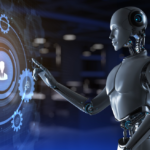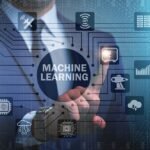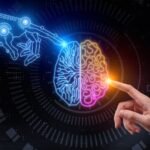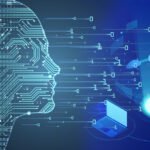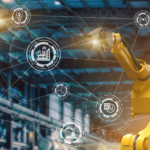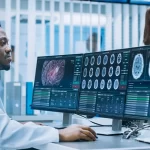AI and Business Process Automation: AI-powered automation of repetitive tasks and decision-making in business processes.
Robotic Process Automation (RPA): RPA involves the use of software robots or “bots” to automate rule-based, repetitive tasks traditionally performed by humans. AI-powered RPA systems can handle data entry, invoice processing, report generation, and other routine activities with speed and accuracy. Intelligent Document Processing: AI can automate the extraction and processing of information from unstructured documents such as invoices, contracts, and forms. Natural Language Processing (NLP) and Optical Character Recognition (OCR) techniques enable AI systems to understand and extract relevant data, reducing manual effort and improving accuracy.
Decision Support Systems: AI can provide decision support in complex business processes. Machine learning algorithms analyze data, patterns, and historical information to provide insights and recommendations. AI-powered decision support systems can assist in areas such as demand forecasting, supply chain optimization, pricing strategies, and resource allocation. Chatbots and Virtual Assistants: AI-powered chatbots and virtual assistants automate customer interactions and support services.
They can handle common inquiries, provide personalized recommendations, and guide users through self-service processes. Natural Language Understanding (NLU) allows chatbots to understand and respond to user queries in a conversational manner. Predictive Analytics: AI techniques enable predictive analytics, which can anticipate future outcomes based on historical data. AI algorithms analyze patterns, detect trends, and make predictions that help optimize business processes. Predictive analytics can be applied to sales forecasting, customer churn prediction, risk assessment, and demand planning. Intelligent Workflow Automation: AI can optimize and automate complex workflows by intelligently routing tasks, monitoring progress, and prioritizing activities.
AI-powered workflow automation systems can adapt to changing conditions, dynamically allocate resources, and improve overall process efficiency. Cognitive Process Automation: AI enables cognitive capabilities in business process automation. Natural Language Processing and machine learning techniques enable AI systems to understand and process unstructured data, handle complex decision-making scenarios, and interact with users in a more human-like manner. Continuous Improvement and Learning: AI-powered automation systems can continuously learn and improve over time. Machine learning algorithms can analyze performance data, user feedback, and process metrics to identify areas for optimization and make iterative improvements to business processes.
AI-powered automation in business processes offers benefits such as increased efficiency, reduced errors, improved scalability, and enhanced customer experience. However, it also raises considerations around data privacy, ethics, and the need for human oversight to ensure responsible and effective implementation.










